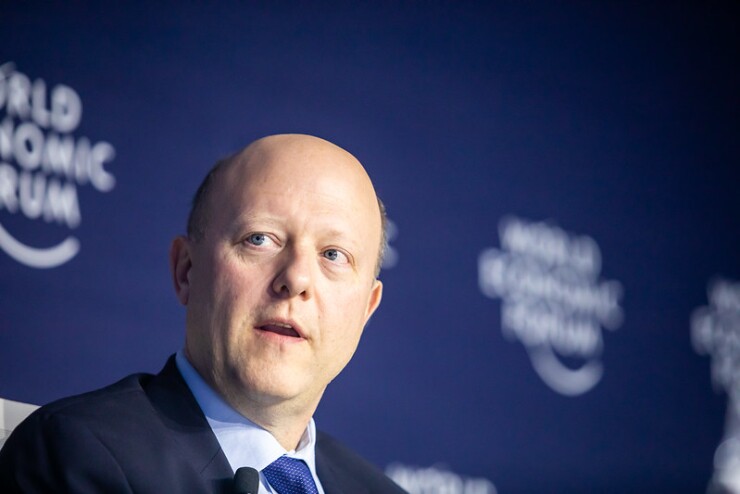The crises of the past year have heightened awareness of technology that can deliver funds faster, giving early movers a chance to demonstrate real-word use cases for faster payments.
The Boston-based blockchain company Circle has hired Dante Disparte, the former vice president of the Facebook-affiliated Diem Association, to help drive Circle's global expansion as Circle adds blockchain and stablecoin products designed to bring more online marketplaces into its network and push mainstream usage.
It's a loss for Diem, which is preparing its launch following two years of regulatory pressure and readjustments. In joining Circle as chief strategy officer and head of global policy, Disparte is on board with an active stablecoin that is already expanding quickly.
"In the last 24 months [at Diem] I have had nothing short of a global conversation around the nexus of technology, payments and compliance and the case for innovation in the movement of money," Disparte said.

Circle also recently added Visa as a partner. Visa will support USDC for the card brand's global platform and merchant network, and Circle's account and API users can access a stablecoin payout on a range of Visa's partner wallets. This brings crypto payments closer to e-commerce marketplaces since it helps sellers identify USDC wallets that accept Visa cards.
"It's a reflection of my own transition. Circle is an operating company and has mass adoption of digital currencies and operations for blockchain," Disparte said, adding he will engage with Circle's leadership team, regulators and partners. "My role here is to build on that momentum and success and start to plant the Circle flag around the world."
Circle in March launched a service to support non-fungible token (NFT) marketplaces and storefronts, and plans to add features in the coming months that will support USDC, bitcoin, ethereum payments for NFTs as well as custodial and yield generating accounts for NFT operators. In late 2020, Circle added

This mix of technology is designed to ease deployment for firms that have traditionally not engaged in digital commerce, or markets that have been traditionally underserved by the legacy banking system. "The pandemic has laid bare that the ability to pay in real time and at scale is invaluable," Disparte said.
Circle is making these moves as blockchain payments technology from other firms such as Ripple expand and attract more banks, and financial institutions such as
Circle says it is likely private firms will drive the digitization of traditional money.
"CBDCs are a set of ideas today," said Jeremy Allaire, Circle's CEO. "The reality is digital currencies and electronic money movement has been driven by the private sector and there's no reason to think that won't be the case here."
Diem did not return a request for comment. The Facebook-affiliated stablecoin, formerly called Libra, has navigated the loss of
Diem also lost co-founder
"Libra started out as a big idea that would establish a new currency," said Tim Sloane, vice president of payments innovation at Mercator Advisory Group, adding countries didn't care for Libra's original concept, so Diem was born as part of the rebrand and regulatory effort. "Both 'Libra' and 'Diem' underestimated the effort involved and by targeting a solution everyone would use, ended up with a solution
Circle is more incremental and targeted, Sloane said of the firm's plan of targeting online businesses that make global payments, and as such can work with individual countries on regulatory acceptance.
"I'd say that [Disparte] found himself a solid, more focused gig as the cogs start to slip on the Diem mountain climbing payment railway."





